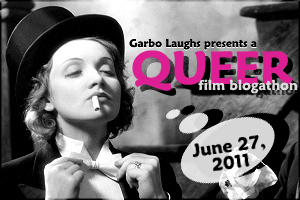"So why do you think this show is so popular?" my long-suffering partner asked while we were watching Dexter. "Is it because Dexter is the classic outsider?" I shrugged at the time, but I couldn't get the question out of my head. Lord knows, she has a point. Dexter IS a classic outsider. Dexter Morgan is 95 percent of the appeal of the show. Subtract Dexter himself, and what you're left with is a run of the mill cop show, and not a very good one at that. I don't think Dexter's status as some kind of archetypal "outsider" is the primary element that appeals to the show's growing audience, though. I think it's more that Dexter represents the id. Dexter's id is the motivating force of the show's story and he even has a name for it. It's his "Dark Passenger." More broadly, Dexter is the patron saint of anyone who has ever had a terrible secret, for anyone who has had to juggle internal demons with external responsibilities. Like most popular entertainments that strike some kind of nerve, I think Dexter is a Rorschach test of sorts. What you get from it depends on what you bring to it.
As a personal note, I TOTALLY identify with Dexter Morgan. Not the serial killing part, mind you, but the need to keep some horrible dark secret and the need to fulfill some dark compulsion. I kept a secret of my own from everyone I knew--it was my own "Dark Passenger"--for literally decades, so looking at Dexter is like looking at a mirror for me, showing my own secret sharer through a glass, darkly.
It was the show's fourth season that invited this conversation, and the events of that season fit this reading of Dexter like a glove, because it's ALL about how one keeps that dark secret, how one lives with it while living with family and friends. While the show's previous seasons have all touched on this theme from time to time--it is the show's major theme, after all--none of them explore the idea with the kind of ruthlessness of season four.

This brings back FBI Agent Frank Lundy (Keith Carradine) from season two, now retired. Lundy is on the trail of the one case that escaped him, a serial murderer who kills in three specific ritual tableaux: a young woman murdered in a bathtub, a mother who seemingly commits suicide from a high fall, and a man bludgeoned to death. He calls this killer "Trinity." Trinity, it turns out, is one Arthur Mitchell, family man. He's played in this season by John Lithgow. Dexter discovers Trinity's identity early on, and in Trinity's life, he sees a balance between the monster and the family man, a balance that Dexter himself is trying to establish. Rather than kill him immediately, Dexter hesitates. Instead, he gets to know him. Indeed, he insinuates himself into Trinity's family life in order to learn his secret. Unfortunately, his secret is that his family life is a sham. A beard for a serial killer that makes the other members of his family into either frightened lambs or into monsters themselves. Dexter, for his part, realizes that this is NOT the way for him, that his own family is as protected by his code as the innocents upon whom he choses not to prey. There are three other storylines going through this season: Laguerta and Battista embark on an affair that has professional consequences; Quinn cozies up with a reporter who has dark secrets of her own, and Deborah has to deal with the twin crises of Lundy's return (and her remaining feelings for him) and her investigation of her father's informants. Some of this feeds the main storyline, but, as usual, some of it is disposable.
Unfortunately for me, the internet spoiled the ending of this season. I won't spoil it, myself, because once we started watching this season, I wished in vain for the internet to develop a debilitating disease for telling me how it ends. I will say this about the ending, though: if the show had ended its run at the end of this season's last episode, it would have been a perfect ending. I'm speaking of this in artistic terms, of course, because it would have provided symmetry, closure, and a dark, dark chill. Dexter is too successful these days for "artistic" decisions, though, so it's only an idle thought. I'm told that season five is even better, but we shall see.
What really makes this particular season tick during its long run-up to the ending is the dual performances of Michael C. Hall, and John Lithgow.

Hall is kind of a miracle. We've been watching Six Feet Under between seasons of Dexter, and the difference between Hall's self-hating gay character in Six Feet Under and Dexter Morgan is so stark that when I first started watching Dexter, I didn't even realize that it was the same actor. Dexter is a character who allegedly doesn't feel strong emotions, but that doesn't stop the show from putting Hall through his paces, including the mounting repercussions of his nocturnal habits and the drawbacks of vigilante justice. As I said before, the appeal of the show is almost entirely derived from Dexter himself, and Hall carries it all off.

Lithgow, by contrast, gives a performance that hearkens back to his serial killing hit man in Blow Out. He's cold, calculating, and entirely menacing. The storyline takes his character through a manic phase, and Lithgow is good in these, too, channeling some of his more comic performances through a deranged filter of implacable malevolence. The scenes late in the season showing how Trinity rules his family are as uncomfortable as family drama gets, and shades well and truly into the territory of the Gothic. Somewhere during the early going of the season, I commented that the role of "main villain" in Dexter was turning into a version of playing a villain on the old Batman TV show, but by the end of the season, I have to recant that thought. It's a plum role, sure, but it's not played for camp or for ego--at least, not by Lithgow, who deserved his Emmy for the role.

Stephen King once noted that werewolf stories have a tendency to re-play the myth of Narcissus, in which the werewolf in question ends up gazing into a reflecting pool. This season of Dexter goes that one better. At one point, Dexter contemplates the fragmented nature of his personae while reflected in the mirrors of a vanity. In the shot, there are four reflections of Dexter, and Dexter himself. Who is the real one? And which one is the Dark Passenger?
















2 comments:
Bummer that end of season four got spoiled for you. I knew one thing about it as well. Our problem is that we see some series, like Dexter, on DVD, so I have to try to avoid all spoilers for quite a while. It's not easy! My partner has taken to buying Mad Men from iTunes because she can't wait for the DVD. We might still hold off on Dexter.
It's funny, you're absolutely right about the show surrounding Dexter himself. The cop show part of it has improved, but often it's more cartoon than real. I do like some stuff they've done with Angel, and I really liked the character of Lundy. (OK, the fact that I had a crush on Keith Carradine played some part in that.) But Deborah drives us crazy.
John Lithgow was their best villain ever. Truly creepy!
Just finished Dexter season 4 myself.
I've loved Dexter since episode 1. For me, it isn't his secrets, but his unusual outsider status. I cannot relate to secrets, because I don't really have them, but I can relate to being so different from everyone else in the room that you don't dare ever speak your mind. And watching Dexter's attempts to appear normal resonate with me.
Now I'm quite curious where they go for season 5. Can Dexter return to his previous life now? Or has be been outed?
Post a Comment